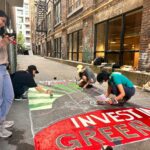The heart of Prince Albert will once again beat with the rhythms of the world as the beloved Tapestrama Cultural Festival returns after a lengthy pandemic-induced hiatus. Set to transform the city’s downtown into a vibrant celebration of diversity from October 4-6, 2024, this year’s revival promises an expanded experience that honors tradition while embracing new cultural connections.
“We’ve waited too long to bring our communities together again,” explains Festival Chair Maria Kaminski, who has been instrumental in reimagining the event for post-pandemic audiences. “Tapestrama has always been about building bridges between cultures, and that mission feels more vital than ever as our city continues to grow and diversify.”
The festival, which began as a modest gathering in the 1980s, has evolved into one of Saskatchewan’s premier multicultural events. This year’s edition will feature over 30 cultural pavilions—nearly double the number from previous iterations—representing communities from six continents. Each pavilion offers an immersive journey through traditional foods, artistic displays, musical performances, and educational exhibits.
Prince Albert’s growing Ukrainian community will host an expanded pavilion that not only celebrates their heritage but acknowledges their homeland’s ongoing struggles. “Our cultural traditions have taken on new meaning in recent years,” notes Oleksandr Petrenko, the pavilion coordinator. “Through our dances, our food, our art, we keep our connection to home alive while building new roots here in Prince Albert.”
Perhaps the most significant addition to this year’s festival is the Indigenous Cultural Center, which will showcase the rich traditions of the region’s First Nations and Métis communities. Elder Mary Whitecalf, who helped organize the center, emphasizes its importance: “This land has been home to Indigenous peoples for thousands of years. Our participation in Tapestrama is both a celebration of our resilience and an invitation to deeper understanding.”
The economic impact of the festival cannot be overlooked. Local business owner James Chen, whose restaurant has participated in previous years, anticipates a substantial boost to downtown businesses. “During the last Tapestrama before COVID, we saw our sales increase by nearly 40% over the weekend. Beyond the financial benefit, though, is the opportunity to introduce our cuisine and culture to thousands of new people.”
City officials have worked closely with organizers to enhance the festival experience. Mayor Deborah Reid has championed the event as essential to Prince Albert’s cultural identity and economic development strategy. “Events like Tapestrama don’t just celebrate our diversity—they strengthen our economy, attract visitors, and showcase Prince Albert as the welcoming, dynamic city we know it to be,” she stated at a recent council meeting.
Accessibility has been a central focus in planning this year’s festival. New transportation options will connect remote neighborhoods to the downtown core, while enhanced facilities will ensure people of all ages and abilities can fully participate in the celebrations. Volunteer coordinator Thomas Blackman reports that more than 300 community members have already signed up to help facilitate the weekend’s activities.
For many Prince Albert residents, Tapestrama’s return represents more than just an enjoyable weekend—it signals a return to the kind of community engagement that was sorely missed during pandemic restrictions. “My children have grown up not knowing what it means to gather like this,” says long-time resident Sarah Mutanda. “I can’t wait to see their faces when they experience the world without leaving Prince Albert.”
As Prince Albert prepares to welcome thousands of visitors, the question remains: can a weekend celebration of cultural diversity create lasting impacts on how communities understand and interact with one another? For organizers like Kaminski, the answer is clear: “Tapestrama isn’t just about three days of food and music—it’s about creating moments of connection that transform how we see ourselves and our neighbors long after the festival ends.”
For more information about Tapestrama 2024, including schedule details and volunteer opportunities, visit the festival’s official website or contact the Prince Albert Multicultural Council.
















